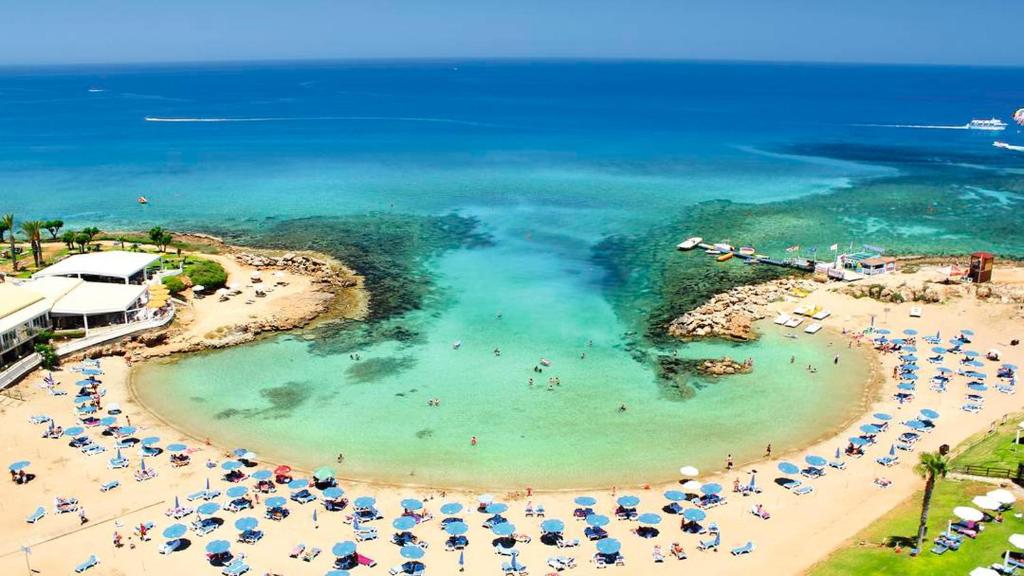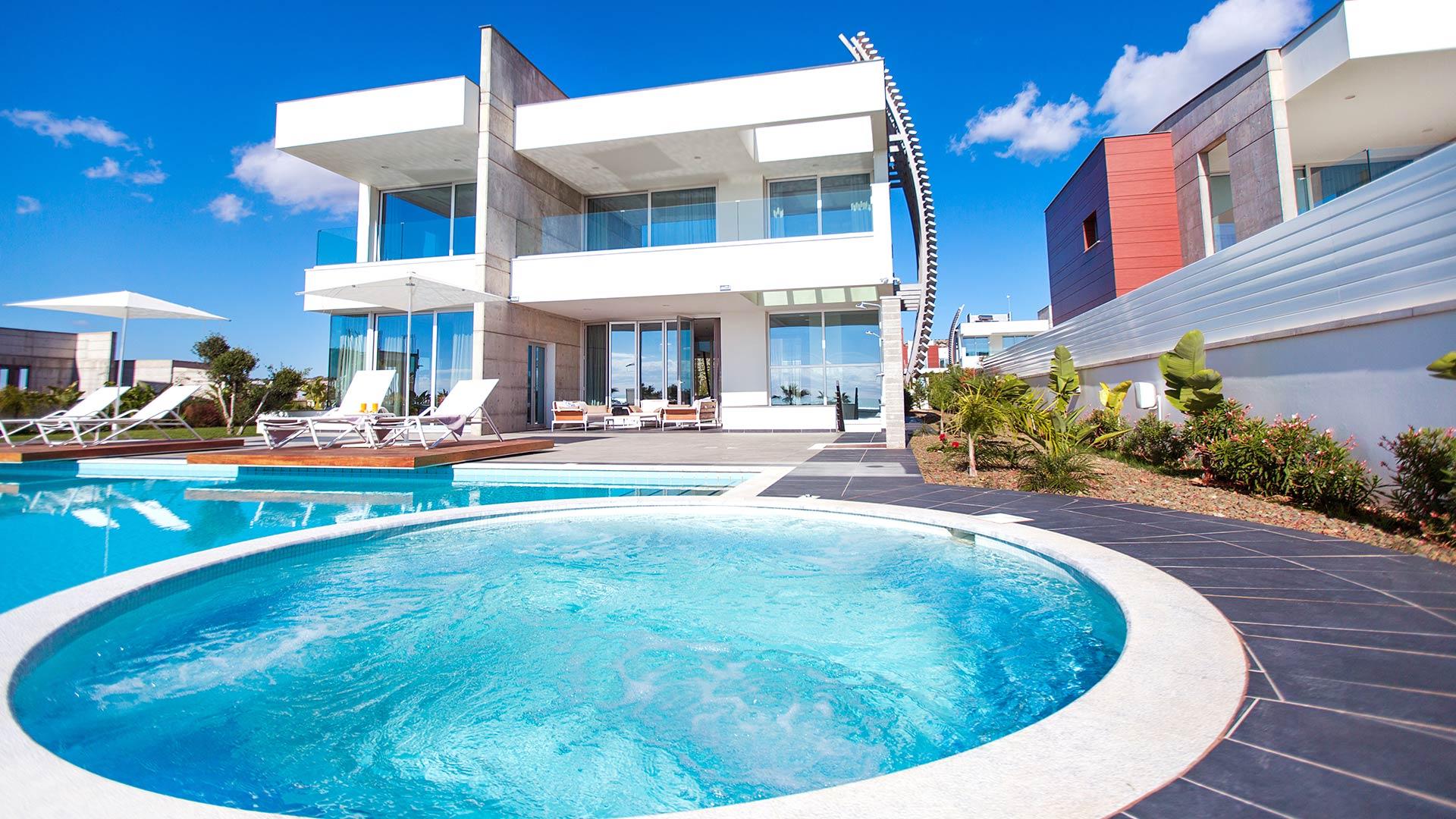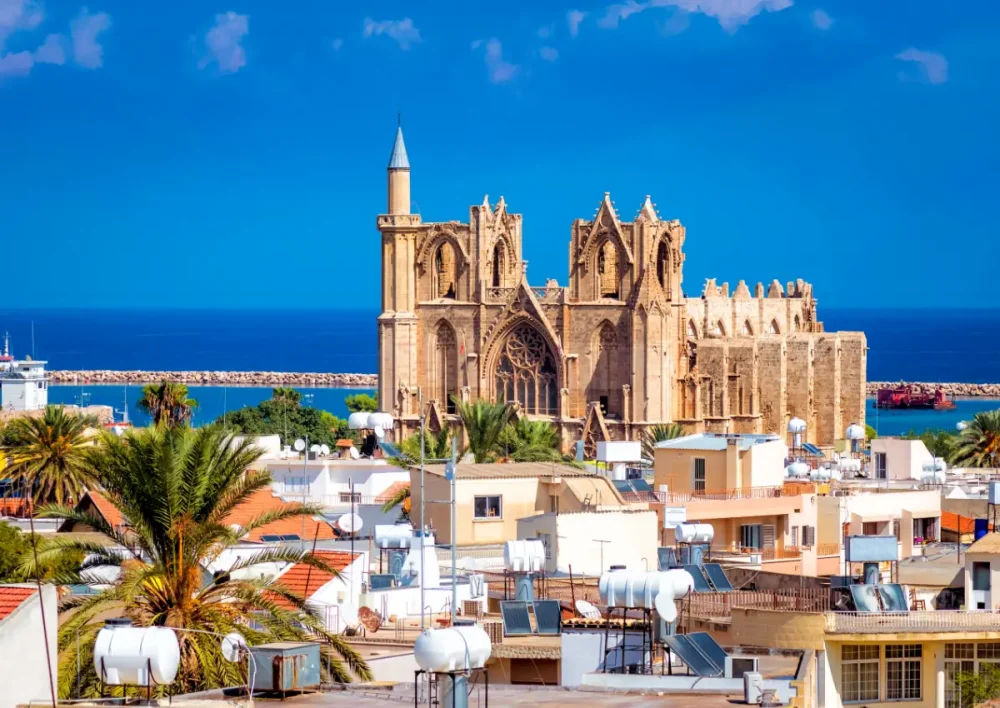Both countries are under the sun, people in them speak Greek, and the states offer residence permits. But once you delve deeper, the differences will begin to show. The decision to choose Cyprus or Greece for life does not depend on the taste for feta or beaches. It requires calculating costs, statuses, taxes, infrastructure accounting, and adaptation in 2025.
Is Cyprus or Greece better suited to life when analyzing housing and infrastructure?
In Cyprus, the average rent of a two-room apartment in Limassol will cost 1,500-1,800 euros. In Nicosia— it is cheaper: €900-1, 100. In Greece, on the continent, similar accommodation in Thessaloniki costs €600-850, in Athens — up to € 1,200.
When buying:
-
Cyprus offers properties from €2,000/m2 in Paphos to €4,500/m2 in Limassol.

-
Greece holds villas from €1,200/m2 in the provinces to €3,800/m2 in Athens.
The difference is in the quality of the finish, legal purity, and transparency of transactions. Cyprus accelerates the processing, completes transactions in 3-4 weeks. Greece requires a notary, long-term approval, waiting up to 3 months.
Daily living budget in Cyprus and Greece
 A family of two spends per month:
A family of two spends per month:
-
in Cyprus — from €2,300 (without rent);
-
in Greece — from €1,800 (without rent).
Grocery basket:
-
Cyprus: a liter of milk — €1.4, chicken — €6.5/kg, gasoline — €1.55/l.
-
Greece: milk — €1.1, meat — €5.8/kg, petrol — €1.8/l.
Cyprus or Greece is better for life — the real budget decides. The first option is more convenient, cleaner, and faster. The second one is cheaper, but slower.
Legal status: Residence permit, permanent residence and access to citizenship
Permanent residence in Cyprus is issued under the investment program: €300,000 — real estate, income from €30,000 per year, additional payments for family members. The terms are up to 6 months, and the status is indefinite. Permanent residence in Greece requires investments of €250,000 in real estate, but the card will have to be renewed every 5 years, confirming the existence of an asset.
A residence permit in both countries requires:
-
address availability;
-
medical insurance;
-
no criminal record;
-
minimum income.
Cyprus or Greece is better for life — it shows the speed and reliability of the status. The first country gives you a perpetual card faster. The second one is cheaper, but requires regular updates.
Is Cyprus or Greece better for living in terms of taxes?
Taxes in Cyprus for foreigners:
-
Income tax — 0% up to €19,500, from €19,501 — 20-35%.
-
No inheritance tax and no dividends (with non-dom status).
-
Corporate tax — 12.5%.
Taxes in Greece for foreigners:
-
Income tax — from 22% to 45%.
-
Annual property tax.
-
The bonus program for “new tax residents” is a 50% discount on personal income tax for 7 years.
Culture, climate, and adaptation: how the environment shapes the way of life
Each country dictates its own rhythm, its own habits and its own style of survival. To understand whether Cyprus or Greece is better for life, it is important to understand not only the prices, but also what is happening between the lines: the atmosphere, people’s behavior, language, seasonality.
Language and level of integration
Cyprus creates a low barrier to adaptation. The official language is Greek, but the English—speaking infrastructure works almost everywhere: from lease agreements to hospital referrals. In Cyprus, more than 75% of the population uses English fluently in everyday life, especially in large cities and on the coast. Banks, pharmacies, clinics, lawyers — all processes are run in English without being forced to integrate.
In Greece, the situation is diametrically different. Even in Athens, basic English is used only in tourist spots. Government agencies, courts, medical institutions, and even the rental sector require basic knowledge of Greek. Signatures, notices, and legal documents are all drawn up in Greek, which automatically requires either knowledge of the language or the cost of an interpreter and lawyer. Cyprus wins unconditionally for a quick and comfortable adaptation.
Climate and impact on life
In Cyprus, summer lasts from May to October, with temperatures reaching +34°C, but humidity remains moderate. It rains for 20-30 days a year, mostly in winter. The average temperature in January is +15°C, heating is used selectively. The architecture is designed to keep cool, air conditioners work almost everywhere.
Advantages:
-
Weather conditions are stable all year round.
-
No sudden fluctuations.
-
A minimum of seasonal exacerbations in medicine (for example, acute respiratory viral infections).
-
The opportunity to lead an active lifestyle without seasonal restrictions.
In Greece, the climate is diverse and sometimes harsh. In the continental part (Athens, Thessaloniki) — winter temperatures drop to +5°C, snowfall is possible. In summer, the air warms up to +38°C with high humidity. On the islands (Crete, Rhodes), the heat is easier to bear, but storms and pressure drops are possible in the off—season. Houses often do not have insulation, heating is connected via diesel installations or electric radiators.
Features:
-
Weather instability in winter.
-
Heating costs in 4-5 months of the year.
-
Increased humidity in coastal regions.
-
The locals are used to the climatic changes, but the newcomers are having a hard time adapting.
Cyprus or Greece is better for living in terms of climate — shows the sustainability of Cyprus. Especially for families with children, the elderly and those who do not tolerate humidity or sudden temperature changes.
Mentality, daily rhythm and relationships
Cyprus: slowness and restraint. Life goes on without fuss. People are polite, but not intrusive. They rarely interfere in the affairs of others and respect personal boundaries. The crime rate is low, and the locals behave predictably. Office hours end early, and there is a two—hour lunch break. In government agencies, although not without queues, they serve calmly, without pressure.
Key features:
-
Moderate speed of life.
-
A minimum of stress and social outbursts.
-
High level of trust in business and everyday life.
-
An abundance of British habits in the organization of everyday life (including left-hand traffic and a 13-hour rhythm).
Greece: temperament and energy. Life is in full swing. People speak loudly, emotionally, react quickly, and sometimes aggressively. Respect for formalities is expressed through mimicry: locals know how to circumvent the rule, apply pressure through familiarity, and achieve what they need through volume rather than procedure. In small towns, a rural model of communication is evident: constant questioning, advice, and neighborhood pressure.
Features:
-
Strong rhetorical culture (everyone talks and argues).
-
High level of social interaction.
-
Difficulties with personal boundaries.
-
Problems with compliance with formal procedures (many processes require “urgent reminders”).
Conclusion: Cyprus or Greece is better for life in terms of mentality — it depends on preferences: Cyprus is for those who are looking for stability and distance, Greece is for those who are ready to participate in a public spectacle.
Adaptation: the time and price of entry
In Cyprus, the adaptation takes 1-2 months. Buying or renting real estate, connecting water and electricity, opening a bank account and taking out insurance is carried out without the involvement of a lawyer. The English-speaking staff explains everything step by step, and the service works flexibly. Social connections arise through business or children — Cypriots are not imposed, but they are ready to support.
In Greece, adaptation takes up to 6-9 months. Each procedure requires a translation, a notary, and approval from a government agency. Queues for submitting documents in some cases reach 30-40 days. Without an intermediary, it is almost impossible to understand registration, taxation, and rental rules. At the same time, local people are actively involved in communication, which helps to speed up socialization.
Conclusion: Cyprus or Greece is better for life, integration complexity shows. Cyprus requires less effort and expenses, Greece requires more effort, but it gives you a circle of friends faster.
Cyprus or Greece for life in terms of quality and cost of medicine
In Cyprus, an international school will cost €7,000-11,000 per year. In Greece — in Athens up to €8,000, in the provinces — less. Schools in both countries require language proficiency, but Cyprus offers more English-speaking options.
Medicine:
-
Cyprus — Gesy state system, minimum fees, fee base of €10-30 per visit.
-
Greece — insurance through EOPYY, tariff surcharges, complex destination system.
When to choose Cyprus and when to choose Greece
Cyprus is suitable if:
-
An English-speaking environment is required;
-
an investment is planned with a quick exit to permanent residence;
-
a tax residence with benefits is important;
-
The simplicity of the bureaucracy and access to government services are critical.;
-
we need a climate without dampness and precipitation.
Greece wins if:
-
The budget for moving is limited;
-
interested in buying cheap real estate;
-
willingness to integrate into local culture;

-
I’m not afraid of a complicated administration;
-
The priority is the mentality and proximity to the European mainland.
Conclusion: Making a choice requires being honest with yourself
 Both countries grant residence permits, access to the EU, the sea and the climate. But the formula of life in each is completely different. Cyprus is more structured, more pragmatic, and more expensive. Greece is wider, more sincere, cheaper.
Both countries grant residence permits, access to the EU, the sea and the climate. But the formula of life in each is completely different. Cyprus is more structured, more pragmatic, and more expensive. Greece is wider, more sincere, cheaper.
The decision requires calculation, understanding of the scenario for 3-5 years ahead and a choice between stability or romantic chaos. It is better to choose the country that will provide exactly the right platform, and not just a visa in your passport.
 en
en  de
de  ar
ar  es
es  nl
nl  hi
hi  fr
fr  it
it  pt
pt  el
el 









